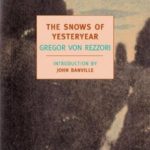by William Wilson
George Orwell’s Homage to Catalonia is an interesting work. Orwell, best known for his later novel, Nineteen Eighty-Four, wrote Homage shortly after his experiences in Spanish Civil War. The book is Orwell’s personal narrative of his time spent fighting in trenches and behind barricades while slowly gaining an understanding of the politics that lay beneath the conflict. The book is not only a fascinating glimpse into a unique epoch but a fine example of Orwell’s writing style and personal life. Orwell, after all, has become a historical figure.
The book is Orwell’s personal narrative of his time spent fighting in trenches and behind barricades while slowly gaining an understanding of the politics that lay beneath the conflict. The book is not only a fascinating glimpse into a unique epoch but a fine example of Orwell’s writing style and personal life. Orwell, after all, has become a historical figure.
On 17 July 1936 right-wing nationalists within the Spanish military launched an attempt to overthrow Spain’s Second Republic. The trade unions and left-wing political parties seized arms and raised militias in support of the Republic. Spain became the flashpoint for all of Europe’s political forces almost overnight. Hitler’s Germany and Mussolini’s Italy supported the Nationalist forces while the Soviet Union threw its weight behind the Republicans. Like thousands of others, Orwell traveled to Spain in order “to fight fascism.” He had arrived in December 1936 and joined the P.O.U.M.’s militia unit based largely upon chance.
Orwell served for a hundred and fifteen days on the front lines near Zaragoza. Most of his time was spent in trenches scrounging for firewood and trying to dodge friendly fire. His survival thus owed much to the poor marksmanship of his fellow militiamen and to the poor quality of their rifles.
After his time at the front he returned to Barcelona. It is here that Orwell tells us that the people had fought not so much for the Second Republic as for a social revolution. The anarchists and other left-wing groups had used the early days of the war to establish workers control where possible. It was this revolution that the Second Republic and their Soviet-backers wanted to reverse in the name of war-time expediency. The tension among the coalition of forces in the Second Republic erupted during the Barcelona May Days in which Orwell took part. The result, as witnessed by Orwell, was a power-grab by the central government and the outlawing of anti-Stalinist parties such as P.O.U.M. Many of Orwell’s comrades were arrested, killed, or simply disappeared in the confusion that followed. He noted with horrible irony that young men fighting and dying for the Second Republic, many of whom were still on the front lines, were being denounced as traitors simply because they belonged to the wrong political party. Orwell and his wife fled to France before becoming victims themselves.

Orwell wrote that he had not realized the significance of the events in Spain until afterward. The book ends with Orwell, in spite of everything, affirming his belief in the decency of human beings. It is an ending that stands in contrast to Nineteen Eighty-Four, written a decade later, which culminates with the main character completely broken, tears rolling down his face, and affirming his love for “Big Brother.” Perhaps the significance of what Orwell witnessed in Spain escaped him longer than he realized.
Photo credits:
Unknown photographer, Ruins of Guernica, 1937
Deutsches Bundesarchiv (German Federal Archive) via Wikipedia
Check out the other winning and honorable mentions submissions for our First Annual Undergraduate Writing Contest!:
Carson Stones’s review of Odd Arne Westad’s Global Cold War
Lynn Romero’s review of Open Veins of Latin America
Katherine Maddox’s review of Beirut City Center Recovery



